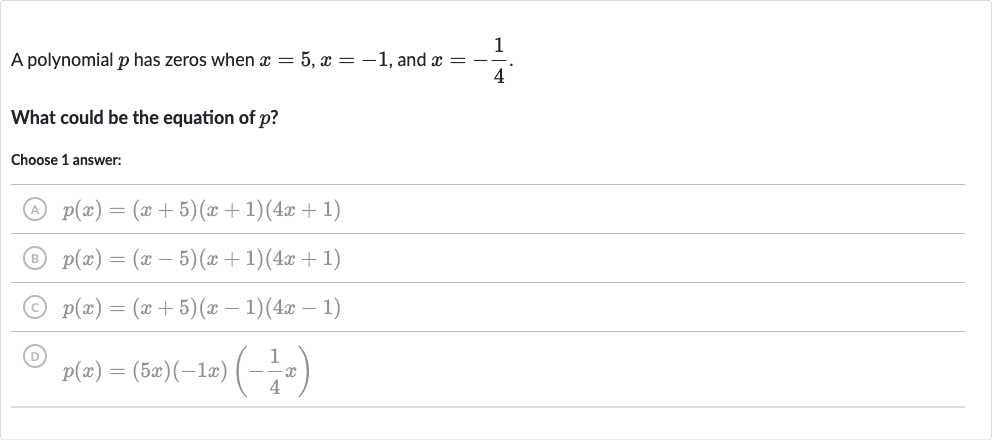Full solution
Q. A polynomial has zeros when , and .What could be the equation of ?Choose answer:(A) (B) (C) (D)
- Identify Zeros: Zeros of the polynomial are given as , , and . To form a polynomial, we use the fact that if is a zero, then is a factor of the polynomial.
- Form Polynomial Factors: The factors corresponding to the zeros are , , and . We multiply these factors to get the polynomial equation.
- Correct Last Factor: . However, we need to correct the last factor to have an integer coefficient. The correct factor for is , not .
More problems from Write a quadratic function from its x-intercepts and another point
QuestionGet tutor help

